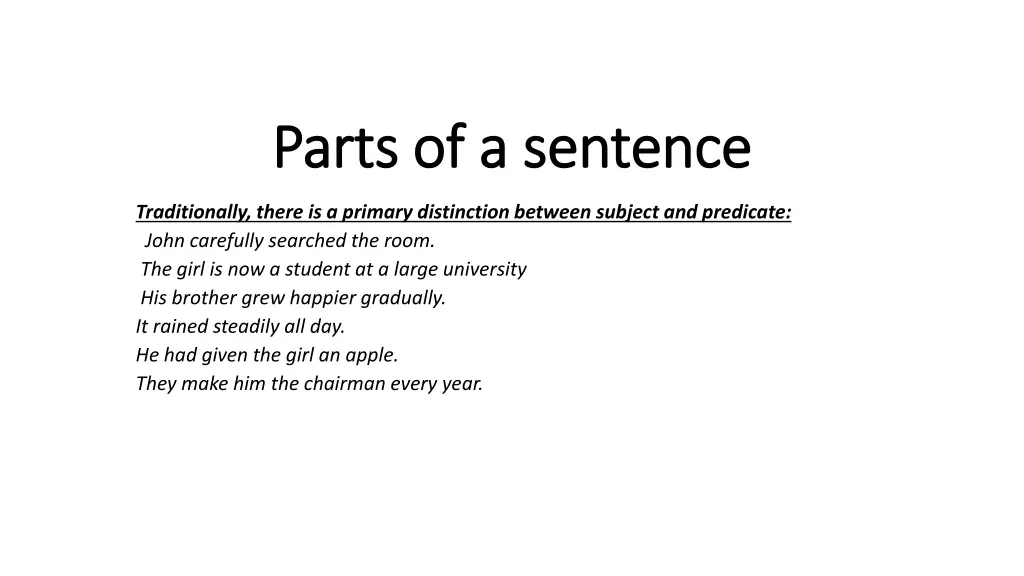
Understanding Parts of a Sentence: Subject, Predicate, Operators
Explore the traditional distinction between subject and predicate in a sentence, understand how the subject and predicate relate, learn about the range of operators in verb expressions, and dive into the role of operators, auxiliaries, and predication in sentence structure.
Download Presentation

Please find below an Image/Link to download the presentation.
The content on the website is provided AS IS for your information and personal use only. It may not be sold, licensed, or shared on other websites without obtaining consent from the author. If you encounter any issues during the download, it is possible that the publisher has removed the file from their server.
You are allowed to download the files provided on this website for personal or commercial use, subject to the condition that they are used lawfully. All files are the property of their respective owners.
The content on the website is provided AS IS for your information and personal use only. It may not be sold, licensed, or shared on other websites without obtaining consent from the author.
E N D
Presentation Transcript
Parts of a sentence Parts of a sentence Traditionally, there is a primary distinction between subject and predicate: John carefully searched the room. The girl is now a student at a large university His brother grew happier gradually. It rained steadily all day. He had given the girl an apple. They make him the chairman every year.
Subject and Predicate: Subject and Predicate: The subject of the sentence has a close general relation to what is being discussed, the theme of the sentence. The subject determines concord. 3.The subject is the part of the sentence that changes its position as we go from statement to question Predicate: It is the implication that something new is being said about a subject.
Range of operators Range of operators 1.The verb expression may have several auxiliaries: He should have been questioned by the police 2.In such cases, it is the first auxiliary that acts as operator: Should he have been questioned by the police? No, he shouldn't have been questioned by the police. Yes, he should. 3.Where the verb expression has no auxiliary in the positive declarative sentence, do is introduced when an operator is required: It rained steadily all day. Did it rain steadily all day? No, it didn't. 4.The verb be can act as operator whether it is an auxiliary, as in: John is searching the room Is John searching ...? or not, as in: The girl is now a student Is the girl now ...? 5. The same is true to some extent (especially in BrE.) for have: He has a degree Has he a degree?
Operator, auxiliary, and predication Operator, auxiliary, and predication We need to subdivide the predicate into its elements or constituents. One division distinguishes auxiliary as operator from what we may call the predication. This particular division of the sentence helps us to understand, for example, how interrogative and negative sentences are formed, how certain adjuncts are positioned, and how certain types of emphasis are achieved.
